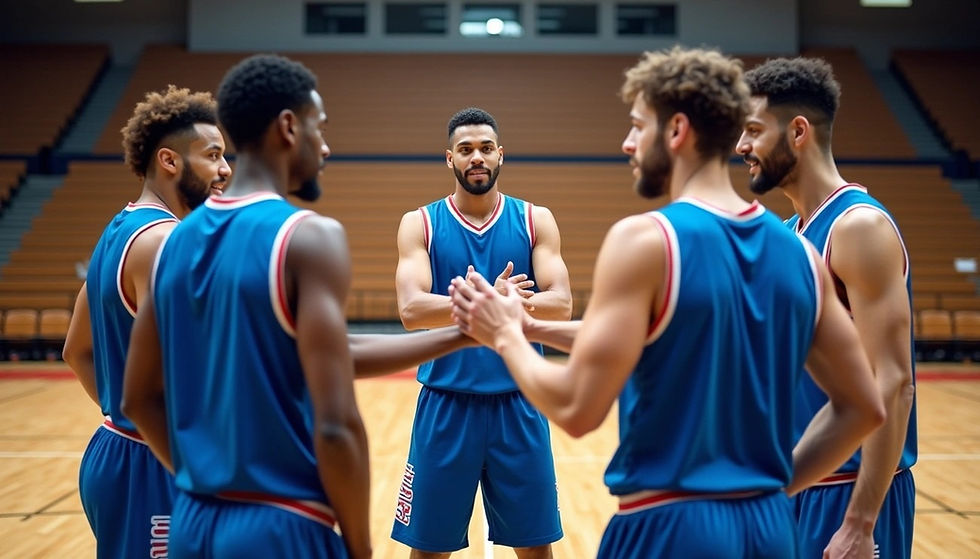Football Psychology Tips: Enhancing Performance and Mental Resilience
- Dr Paul McCarthy

- May 31, 2025
- 4 min read
Football is as much a mental game as it is a physical one. Many players spend countless hours training their bodies, but often overlook the power of the mind. In this blog post, we will explore practical psychological tips - football psychology tips - that can help football players enhance their performance, focus, and mental resilience on the field.
Understanding the Role of Psychology in Football
Psychology plays a crucial role in the performance of athletes. It involves the mental processes that influence how players perceive and react to different situations during a game. Factors such as pressure, motivation, confidence, and anxiety can significantly impact performance levels.
Research shows that mentally strong players tend to perform better under pressure. For instance, a study conducted by a sports psychology institute found that athletes who engaged in mental training during their practice sessions improved their game performance by up to 30%. Understanding this, it becomes essential for football players to integrate psychological training into their preparation routines.

Setting Realistic Goals and Expectations
One of the fundamental aspects of sports psychology is the setting of realistic goals. It’s important for players to establish specific, measurable, achievable, relevant, and time-bound (SMART) goals that guide their training and performance.
For example, instead of aiming to “score more goals,” a player could set a goal to “increase scoring by 20% in the next season.” Such specific targets not only provide direction but also foster a sense of accomplishment as the player progresses. This process can reduce anxiety and enhance motivation, enabling players to stay focused on their objectives.
Visualization Techniques for Success
A powerful psychological tool used by many professional athletes is visualization. This technique involves imagining oneself successfully executing a task or play. Visualization can help players build confidence and enhance motor skills.
To practice visualization, a player should find a quiet space, close their eyes, and picture themselves in a game scenario. For example, they might visualize receiving a pass from a teammate and then scoring a goal. Studies suggest that spending just a few minutes a day on this practice can improve performance under pressure.

Developing a Pre-Game Routine
Establishing a consistent pre-game routine is vital for football players. A routine can help establish mental cues that signal the body and mind to prepare for the game. This could include warm-up exercises, motivational speeches, or music playlists.
For instance, a player might spend the first 10 minutes before the game doing dynamic stretches, followed by 5 minutes of deep breathing exercises to calm their nerves. This can help them enter the game focused and ready to perform. Furthermore, having a routine can reduce uncertainty and anxiety, creating a greater sense of control.
Embracing Mindfulness for Enhanced Focus
Mindfulness is another excellent strategy for improving performance on the field. By practicing mindfulness, players can increase their focus and awareness during the game. This technique encourages being present and fully engaged in the moment.
Simple mindfulness practices include focusing on one’s breathing or reflecting on sensations occurring in the body while warming up. Research indicates that athletes who practice mindfulness show improved performance, particularly in high-pressure situations, because they are less distracted by negative thoughts.

Building Mental Resilience
Mental resilience is the ability to bounce back from setbacks and maintain performance levels, even under challenging circumstances. Football players often face adversities such as injuries, losses, or personal issues. Developing mental resilience is crucial for long-term success.
One way to build resilience is through positive self-talk. Encouraging oneself during tough times can foster a stronger mentality. For example, after a miss, a player might say, “That’s okay, I’ll get the next one.” This positive affirmation helps in maintaining confidence and motivation.
Additionally, players should learn to frame challenges as opportunities for growth. Instead of viewing a defeat as a failure, they can see it as a chance to analyze their performance, learn from mistakes, and improve. This mindset shift cultivates resilience and fortitude.
Seeking Professional Help When Needed
While self-help techniques can be effective, sometimes players may need professional support. Consulting a sports psychologist can provide players with specialized strategies tailored to their individual needs. These professionals can help address any mental blocks, performance anxiety, or other psychological challenges.
Professional support can be particularly helpful during significant transitions, such as moving up to a more competitive league or dealing with an injury. Engaging with a sports psychologist can also enhance focus and mental toughness, leading to improved performance on the field.

Final Thoughts on Football Psychology Tips
Psychology is an essential component of sports performance, and football players can greatly benefit from incorporating psychological techniques into their practice. By setting realistic goals, visualizing success, establishing pre-game routines, practicing mindfulness, building mental resilience, and seeking professional help when needed, players can unlock their full potential on the pitch.
While physical training is vital, don’t underestimate the power of a strong mind. With the right psychological strategies, you can not only enhance your performance but also enjoy the game more. Remember, in football, as in life, the mental game is just as important as the physical one.








